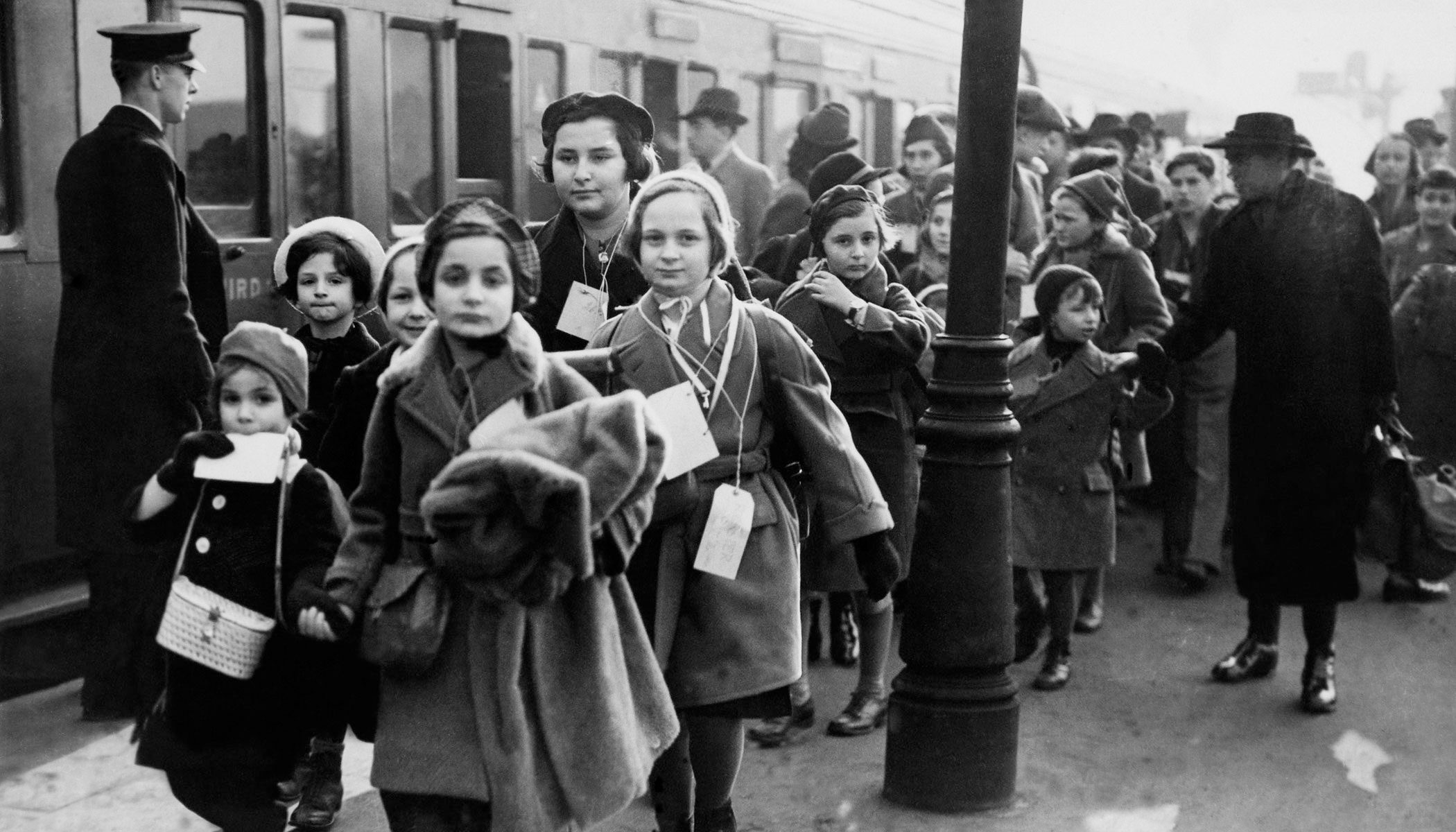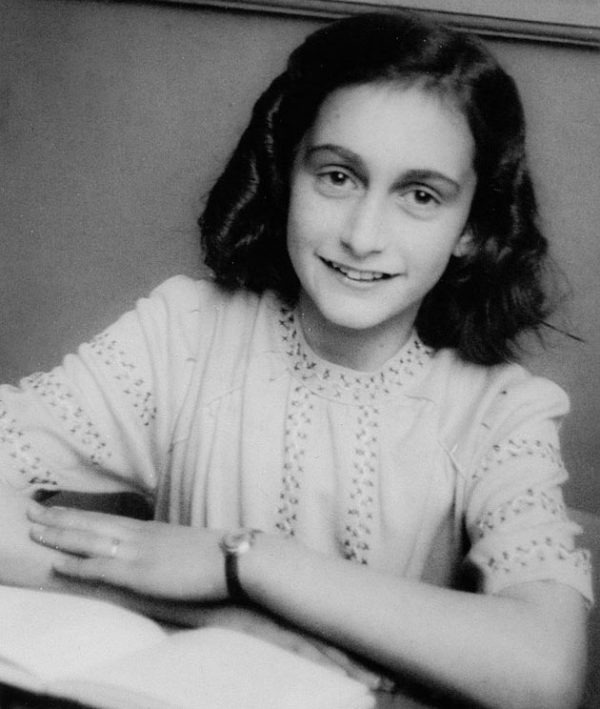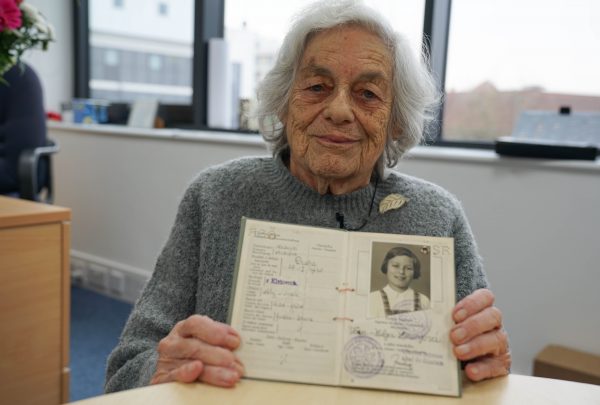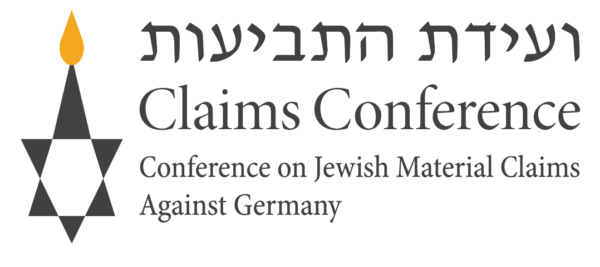New Study Reveals U.K. Respondents Believe Two Million or Fewer Jews Were Killed in the Holocaust
The U.K.’s Historic Kindertransport Which Saved Thousands of Jewish Children Is Nearly Forgotten

The Claims Conference has conducted eight surveys across ten countries examining Holocaust knowledge and awareness worldwide
NEW YORK, NEW YORK: November 10, 2021 – Gideon Taylor, President of the Conference on Jewish Material Claims Against Germany (Claims Conference), today announced the release of a United Kingdom Holocaust Knowledge and Awareness Survey including a comparison among England, Scotland, Wales and Northern Ireland all of which show a surprising lack of awareness of key historical Holocaust facts, including the U.K.’s own connection to Holocaust history.
The majority (52%) of all respondents did not know that six million Jews were murdered and 22% thought that two million or fewer Jews were killed during the Holocaust. Further, a majority of U.K. respondents (57%) believe that fewer people seem to care about the Holocaust today than they used to, and 56% believe that something like the Holocaust could happen again today.
“We are very concerned to see the profound gaps in knowledge of the Holocaust in this and in previous studies including about events connected to the U.K. Yet, it is very powerful to see the overwhelming majority of U.K. respondents say the Holocaust should be taught in schools,” said Gideon Taylor. “Eighty-eight percent believe that it is important to continue to teach the Holocaust, in part, so it does not happen again. This is where we need to focus our energy. Education will not only fill the gaps in Holocaust knowledge, but it will also make for better, more empathetic citizens.”
Kristallnacht or “Night of Broken Glass” was the pivotal moment 83 years ago today when Jews across the Third Reich were attacked in a nationwide pogrom and Jewish families knew they had to take the heartbreaking step to get their children out of Europe leading to the “Kindertransport” – a desperate effort by British citizens to rescue some 10,000 Jewish children from the horrors of Nazi Germany and German-annexed countries, and certain death. One of the more disappointing findings in the U.K. survey is, when asked about the “Kindertransport,” 76% of respondents did not know what the historic effort was.
Greg Schneider, Claims Conference Executive Vice President said, “It is particularly disappointing to find that the Kindertransport, an important historic chapter, that reflected the best of humanity and should serve of a beacon of hope in the darkest of times, is being forgotten. Now more than ever it is critical that we find new and innovative ways to perpetuate the memory of the Holocaust through education. This is imperative, not just for the memory of the six million who were murdered and the survivors still with us, but for the generations to come. Only through understanding our history can we ensure a better future.”
U.K. respondents were largely unaware of their government’s willingness to accept Jewish refugees fleeing Nazi Europe during the war. Sixty-seven percent of respondents wrongly believe that their government allowed all or some Jewish immigration, when in fact the British government shut the door to Jewish immigration at the outbreak of the war.
When asked about current-day neo-Nazism, respondents felt the U.S. was in much worse shape with 15% of respondents saying there are a great deal of or many neo-Nazis in the United Kingdom today, compared to 39% who believe that there are a great deal of or many neo-Nazis in the United States today.
A stark difference in this study versus recent U.S. studies is the better knowledge of concentration camps and ghettos by U.K. respondents. While 32% of U.K. respondents were unable to name a concentration camp or ghetto including Auschwitz, 45% of U.S. adult respondents were unable to do so. Paul Salmons, curator of the international award-winning exhibition Auschwitz: Not long ago Not far Away and Claims Conference survey taskforce member said, “This series of Holocaust studies allows us to see the gaps in knowledge globally, but also shows that respondents undoubtedly want greater Holocaust education in their schools. The waning Holocaust survivor population creates an even greater urgency as they are our eyewitnesses and first-hand testimony, not just about what happened, but the impact of these historical events.”
Matthew Bronfman, Claims Conference Holocaust Taskforce Chairman said, “It has been my honor to serve as Taskforce Chair for the Claims Conference Holocaust Knowledge and Awareness Surveys. The work being done by the taskforce and the outcomes from the surveys have not only shown how important Holocaust education is but have also revealed a real desire for Holocaust education across all populations. This highlights the support we need to provide to our teachers around the world.”
Professor Stuart Foster, Executive Director, UCL Centre for Holocaust Education and Taskforce member said, “The illuminating findings of the most recent Claims Conference study which focuses on Holocaust knowledge and awareness in the UK offer cause for concern and hope. It is troubling that knowledge levels among the British public on important issues such as Britain’s response to the Holocaust are so low and the findings which relate to the rise of antisemitism, neo-Nazism and Holocaust denial and distortion are deeply disturbing. Nevertheless, it is encouraging that 88% of respondents agree the Holocaust should be taught in schools and 71% believe the government should support the development of educational resources to teach about the Holocaust. Indeed, this report adds to a growing body of evidence which demonstrates how critical it is for all young people to receive high quality and effective Holocaust education. Not just so that students obtain sound historical knowledge, but so that they have the opportunity to use this knowledge to powerfully explore its contemporary significance.”

Only 14% of survey respondents in the U.K. were able to name Bergen-Belsen, the notorious concentration camp where Anne Frank and her sister Margot were murdered.
Bergen-Belsen was liberated by the British 11th Armored Division at the end of the war.
Major Survey Findings
Knowledge and Awareness
- 89% of respondents said they had definitely heard about the Holocaust, some three quarters knew that it involved the mass murder of Jewish people, but there are significant gaps in knowledge and understanding.
- 52% of U.K. respondents did not know six million Jews were killed during the Holocaust. Nearly one quarter (22 %) believe two million or fewer were killed.
- Nearly one-third of U.K. respondents (32%) were unable to name a single one of the more than 40,000 camps or ghettos established during World War II. While a high percentage were able to name the notorious Auschwitz (63 percent), just 14 percent were able to name Bergen-Belsen, 10 percent named Dachau, while a mere six percent named Treblinka and four percent named Sobibor. Still, this is much stronger than the results of the U.S. adult survey showing 45 percent were unable to name a camp or ghetto and 48 percent of U.S. Millennials and Gen Z unable to do so.
- A majority of U.K. respondents (56%) believe something like the Holocaust could happen again. On a concerning note, seven out of ten respondents in the U.K. say at least a few people in the U.K. believe the Holocaust did not happen, and nearly one-quarter (22%) of respondents say a “great deal” or “many” people in the U.K. believe it did not happen.
- 57% of U.K. respondents agree that fewer people seem to care about the Holocaust today than they used to.
The U.K. During the Holocaust
- U.K. respondents did not know what happened when the U.K. government was made aware of the mass killings of Jews, significantly overestimating the strength of the British response. 67% of U.K. respondents wrongly believe that the government allowed all or some Jewish immigration during the war.
- When asked about Kindertransport – a British effort to rescue Jewish children from Nazi Germany – 76% did not know about this heroic effort.
76% of survey respondents in the U.K. were unaware of the Kindertransport —the British effort to rescue Jewish children from Nazi Germany.
Pictured: Vera Schaufeld, a survivor of the Kindertransport attends an information session for the Claims Conference Kindertransport Fund held in the U.K. in 2019.
Photo: Ed Serotta/Centropa

Neo-Nazism and Antisemitism
- U.K. respondents believe that neo-Nazism is more prevalent in the U.S. than in the U.K. 15% say there are a “great deal” or “many” neo-Nazis in the U.K. while comparatively, 39% say there are a “great deal” or “many” neo-Nazis in the U.S.
- 65% of U.K. respondents believe there is antisemitism in the U.K. today.
Holocaust Education
- U.K. respondents overwhelmingly (83%) believe that all students should learn about the Holocaust in school.
- 88% believe that it is important to continue to teach the Holocaust, in part so it does not happen again; and 72% of respondents say that schools in the U.K. should be given more resources from the government to teach about the Holocaust.
Constituent Countries Survey: England, Wales, Scotland, N. Ireland
- A majority of citizens in all four regions of the U.K. – Wales (66%), Northern Ireland (61%), England (55%), and Scotland (54%)— believe something like the Holocaust could happen again today.
- When polled about education, 91% of respondents in Northern Ireland believe it is important to continue to teach about the Holocaust, in part, so it doesn’t happen again. The numbers were similar in the other regions, with 88% in England and Wales, and 86% of respondents in Scotland sharing the same belief.
- Across the four constituent countries, Holocaust denial is relatively consistent, with roughly 1-in-10 saying that the Holocaust is a myth or has been greatly exaggerated. Wales (10%) has the highest percentage of respondents who believe this form of Holocaust denial, whereas Northern Ireland (6 percent) has the lowest percentage.
Survey Taskforce:
A U.K. Holocaust Knowledge and Awareness Survey Taskforce chaired by Claims Conference Board member Matthew Bronfman, was comprised of as historians and subject matter experts from museums, educational institutions and leading nonprofits in the field of Holocaust education, including Yad Vashem, the United States Holocaust Memorial Museum, the Claims Conference, UCL and George Washington University. Taskforce members include: Richelle Budd Caplan, Director of International Relations and Projects at the International School of Studies at Yad Vashem; Rebecca Hale, Senior Research Associate at the UCL Centre for Holocaust Education; Stuart Foster, Executive Director at the UCL Centre for Holocaust Education; Michael Feuer, Dean of the Graduate School of Education and Human Development at George Washington University; Tim Kaiser, Director, Educational Resources and Wexner Center at the United States Holocaust Memorial Museum; David Marwell, Director Emeritus, Museum of Jewish Heritage; Paul Salmons, curator of the international award winning exhibition Auschwitz Not long ago Not far Away; and Holocaust survivor Sidney Zoltak.
Survey Methodology and Sample:
The U.K. Holocaust Knowledge and Awareness Survey was commissioned by the Claims Conference. Data was collected by Schoen Cooperman Research, with a representative sample of 2,000 interviews with adults aged 18 and over between September 29 through October 17, 2021 across the United Kingdom. The margin of error on the United Kingdom sample of 2,000 is +/- 2%. The number of interviews conducted in England is 1,680. The margin of error of the England sample is +/- 2%. Additional interviews were completed in Scotland, Wales, and Northern Ireland to achieve 700 interviews in each nation. The margins of error on the Scotland, Wales, and Northern Ireland samples is +/- 4%. The number of interviews conducted in total for this study is 3,780.

